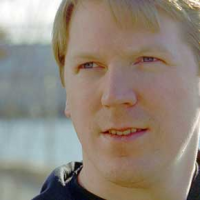How open source relates to everything


This was associate editor Elsa Wenzel's interview with Cameron Sinclair, co-founder of the Open Architecture Network.
Cameron is doing what many Southerners of my acquaintance would call "God's work," applying the principles of open source to getting the world's poor into decent housing.
The OAN collects designs for inexpensive, Earth-friendly housing around the world and works to get those homes constructed.
A design that's cheap in Alabama may not be cheap in Guatamala, or vice versa, so the OAN keeps that in mind. They're also good at tickling consciences, and this work became easier after they won the TED Prize in 2006.
One could say Sinclair is applying the lessons of open source, or social networking, to getting people housing.
In fact he's applying what I like to call Internet Values.
Internet Values like transparency, openness, and consensus, which I described in some detail last month, are transforming wherever they are applied.
They were far more difficult to apply in a world based on broadcasting, mass media and mass production than they are in a world of narrowcasting, Internet media and customized production.
Their time has come because this medium enables their cheap application.
But just as there is a delay between installing software and seeing productivity benefits, there is an even longer delay between building the Internet and embracing these new values.
Yet, as Sinclair has proven, they can be applied all across society, to all sorts of ends.
Applying these values, within a corporation or a community, is no easy feat. Changing our values means changing ourselves, and how we interact with everyone.
If that last sentence sounds religious in character, it's not intentional, nor meant to be insulting to any religion. But the change which the embrace of Internet Values can bring is just as profound, and we've just started to tap the depth of that change.
Fearing the exchange, or expecting someone else to create that change for us, won't get the job of change done. That was my point about HP.
Change is something we have to make ourselves.